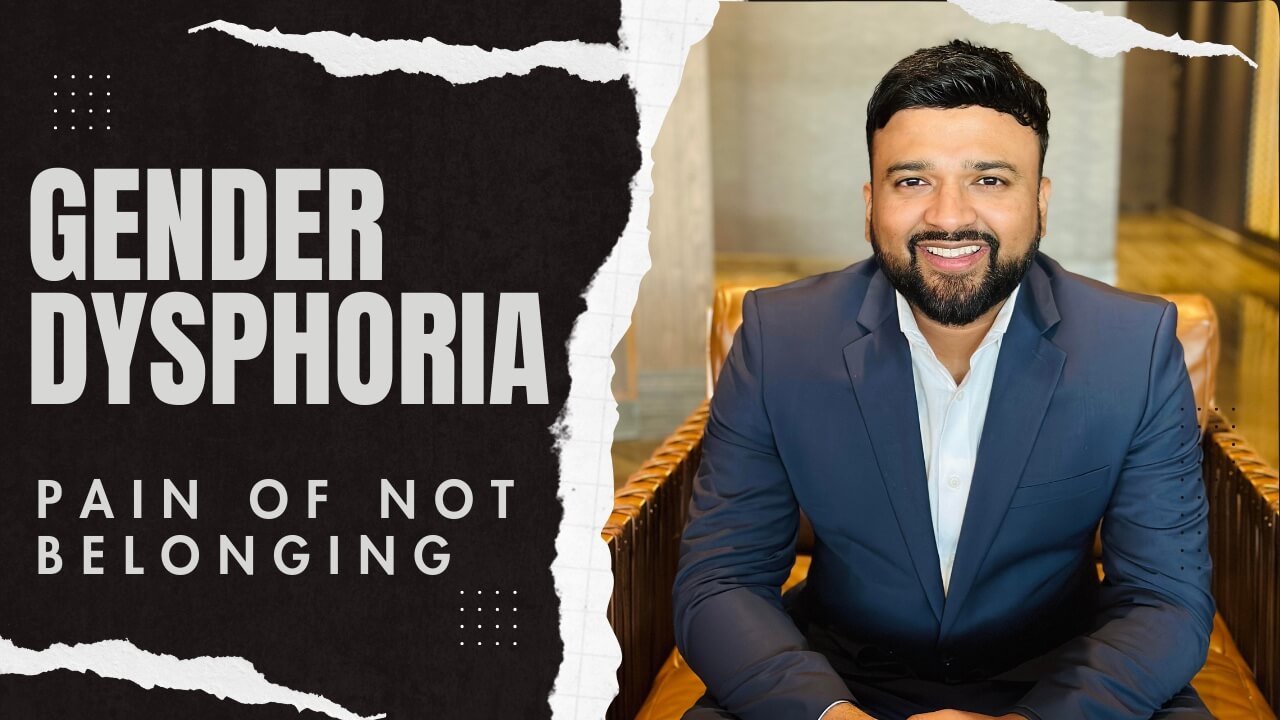
Theme: Gender Dysphoria and Transgender Identity
Theme: of Acceptance [self-acceptance and Accepting others]
Video Thematic Analysis
- The Theme of Sexual Conflict and the Pain of not Belonging
Sexual identities that contradict with the sex assigned at birth have been a controversial issue of discourse in the Christian realm. The acceptance of members of the LGBTQ into Christianity is a significant challenge, especially because of different denominational teachings and regard for such practices as evil. Consequently, discovering one’s identity can be a significant source of stress and even strain one’s relationship with God. Christianity is not something that an individual discovers in himself or creates. It is a divine gift that is given only by God, the supernatural being that is also the creator of humans who also knows their true identities. Therefore, identifying as a Christian should be admissible for anybody because they are created by God and redeemed by the works of Jesus Christ.
One of the problems I presume from the theme of sexual identity and Christianity conflict is the use of labels in introduction. As the topic of being a Christian while coming from the LGBT group already sparks a controversy, it becomes problematic when sexuality is readily attached to the title Christianity. For example, an individual is likely to introduce himself like “I am a gay Christian.” The introduction already elicits mixed reactions because it sounds problematic for “gay” and “Christian” to be found in one sentence. From that perspective, it would be recommendable for Christians to be gracious with each other and exercise freedom before labeling other people. A language used to reflect the truth as much as possible, and whenever necessary is pertinent in such a controversial topic. For example, before other people are labelled “gay Christians,” it is rare for one to identify as a “straight Christian.” For that reason, sexuality should be regarded as part of the introduction about faith and religion.
From the Biblical perspective, God created Sex to become the most beautiful gift to mankind. While one of the abstract reasons for sexuality is for reproduction, God did not confine sex to reproduction alone. Instead, it was designed with intimacy and mutual enjoyment to sustain marital relationships and function as an expression of love. Sex was intended to become a source of delight and satisfaction for couples. From the epistles, Paul compares marital unions to the relationship between Christ and his church (Ephesians 5:22–33).
Same-sex relationships and marriages have been outside God’s frame for genital intimacy to occur, as evident from the biblical literature. As such, it is a radical departure by the church to either sanction or bless such sexual behaviors and expression. It is prudent to understand that those identifying as LGBTQ do so out of “reason” and personal experiences, rather than the church tradition or scripture. As such, it has become a culture emphasizing individual interests and a hedonic worldview within which personal pleasure and satisfaction is pursued regardless of the position of the Gospel.
- The Theme of Acceptance [self-acceptance and Accepting others]
Another theme that sparks up in the discourse of sexual identity conflicts in the Christian mainstream is acceptance and, or change. The theme pops up in different dimensions. For instance, it is a universal understanding that God is the creator of all people, and as such, the creator of their sexual identities and nature. It is often assumed that many people identify as transgender because of how they discovered themselves, which include the aspects of gender dysphoria that Dr Elizabeth explains in detail, citing cases of hormones and other naturally-occurring instances. Others are situational causes like experiences of sexual abuse, which cause an individual to develop an attitude towards a certain gender.
According to Dr Yarhouse in his speech at Gordon College, resolving the dilemma of sexual identity involves addressing the fundamental question of what causes something. Referring to John 9 where the Jesus’ disciples questioned him about the cause of blindness for the man who was born blind, Jesus provides the fundamental explanation that some things do not necessarily occur out of sin or punishment, but for the glory of God to be manifested. While blindness cannot be compared to sexuality, it would be a Christian worldview to accept the state of affairs in society, including the expression of other people with the abstract faith that God has a purpose and may manifest His will through them. On that regard, Dr Yarhouse, who makes reference to the opinion of C.S. Lewis, indicates that the physical satisfaction from homosexuality is sin. However, the final course leads to a vocation to handle homosexuality like any other tribulation that Christians face today so that the works of God can be made manifest.
Nonetheless, the first issue that pops up in my mind whenever the issue of acceptance and change occurs is the sense of personal pleasure and satisfaction. In the society today, people have been increasingly modifying their bodies to fit their desired aspects as noted from practices such as enlargement of different body organs and parts, plastic surgery, and permanent tattoos. Such processes are carried out for personal preference reasons. To some extent, gender conversions can represent a pursuit for personal acceptance and pleasure, which does not reflect the will of God as per the biblical teachings, or an urgent need like that of a medical surgery.
Therefore, a conflicting sexual identity and the strive for self-acceptance constitute significant issues in the church today, with even those that are affected suffering because of the sense of not belonging to the flock. The fear of rejection significantly troubles such individuals, and may affect their relationships with God. Altogether, I hold a rational opinion on the matter based on Acts, 10:34 “There should be no discrimination within the Body of Christ because there is no discrimination with God.” That has always informed my attitude towards such subjects, even as I have the obligation to consecrate them with the truth of the scripture (John 17:17–19), I believe that I must keep them abreast and nurture their relationship with God so that He could transform them.
References
Adams, C. (2022). Gender Dysphoria and Transgender Identity. [YouTube]. Retrieved from https://www.youtube.com/watch?v=2thHPMurD6g
Homosexuality: A Christian View with Dr. Mark Yarhouse. Retrieved from https://www.wheaton.edu/academics/school-of-psychology-counseling-and-family-therapy/sexual-and-gender-identity-institute/resources/videos/
Pr. Lijo George
Fuller Theological Seminary
CN721: Mental Health Issues in Congregations
11/15/22

